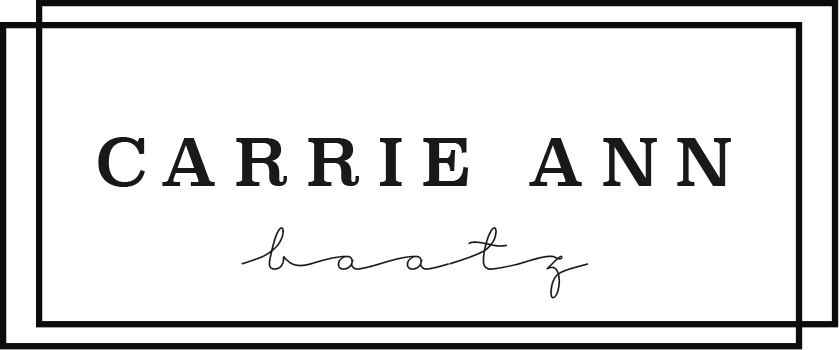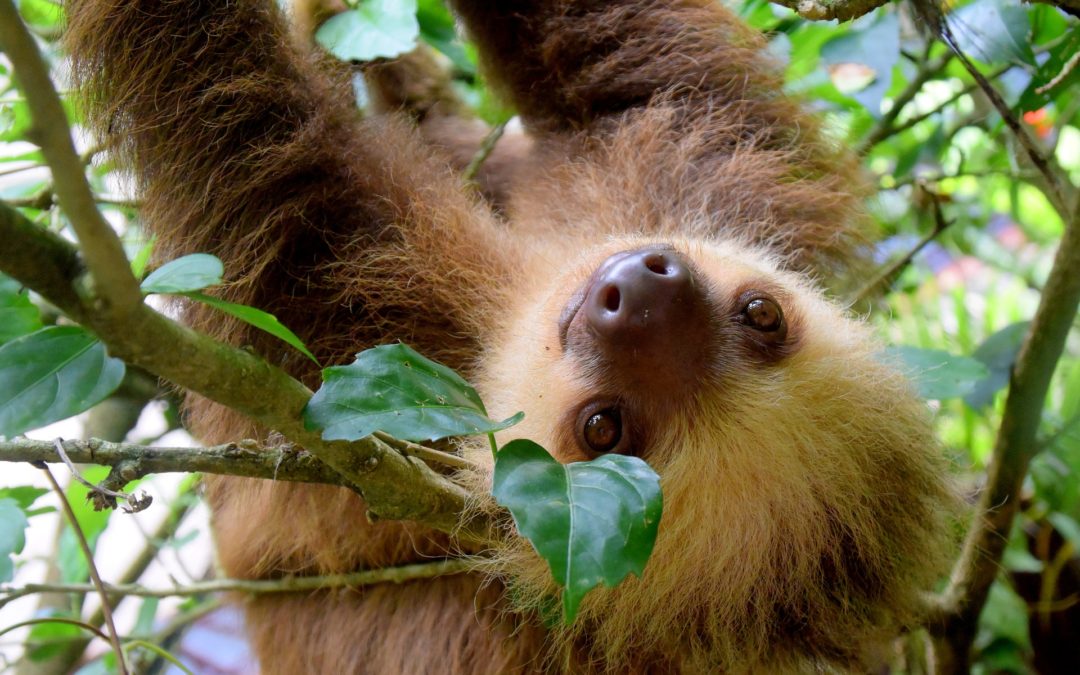Sloths spend 90% of their lives hanging upside down from trees. They stir once in a while when they must move, traveling about one foot in an hour. They take the crown for being the slowest animals on Earth, and they might also be the most adorable. Their digestion is even unhurried – it takes them 30 days to digest one leaf!
These gentle souls lead quiet, simple lives in their tropical habitats. Their greatest stress in our modern era is to be surrounded by a lot of noise and humans that they can’t escape.1
I think I am a spirit-human to a sloth. I am slow. My brain processes information and emotions deeply. To function well, my body needs time to warm up and decompress. Before I talk, I need to think for a while. I prefer to concentrate on one thing and make my choices slowly. I take my time to walk and eat, and to do just about anything.
And I must confess, I am a slow driver.
When driving in the fast lane on the road, or in life, we don’t have much patience for slowness. Our society values speed. Kids are praised when they are fast learners; the fast talkers are heard; the workers who get the most done in a short time are rewarded. If you move or think slowly, you’re often seen as a nuisance or a weakness holding everyone else back. You might even be mistaken for being lazy or passive.
There are many purposefully slow rhythms in nature – and no one seems to apologize for it. Sloths will remain unmoving for hours or days to conserve their energy, and they instinctively slow down to a freeze to survive predator attacks. When I feed crickets to Kalina, my bearded dragon, she sits there waiting for them to come to her, rather than lunging for them. Why spend your energy when you can save it for a more important moment?
Similarly, human slothfulness is an adaptation. Some people find a slower pace in order to meet their needs for reflection, rest and downtime. We might be burning energy faster every day because of a disability, injury, illness, stress or personality. Whatever the context, we feel it when we are the first to get tired, when we notice that we can’t fulfill as many commitments as other people can, or when we become sick because we tried to push past our limits. We can burn ourselves out trying to keep up with everyone else.
In its extreme forms, human slothfulness can become a kind of escapism – a pull to disengage from life and sleep it away. At its best, it is a longing for peace that moves me to restore balance of activity and downtime. I require about an hour of downtime every day when I just sit, doing nothing, while my mind processes. I try to plan my schedule around my natural rhythm, and I have found that this is necessary for regulating my anxiety and mood swings. When I slow down and pause, I ground myself faster.
Besides self-care, there are perks to being a little slothful. I have some of my best creative moments when I am resting. Being deliberately unhurried may also make you stronger. Doing less is a quiet rebellion against some of the great pressures in life – the inadequacies that can drive this frantic push to always be productive. When we can find our natural pace and hold to it, refusing to be pushed beyond our limits, we plant ourselves solidly. We can withstand the whirlwind that blows around us and constantly says, “You are not enough,” while pulling us away from our real values and into things we don’t really want. The things we really want in life, so often, take their time.
1Read 10 Facts about Sloths, Nature’s Slowest Animals for fun facts about sloths, and how to treat a sloth safely should you encounter one when you’re traveling.


I love this, Carrie! We can definitely learn so much from a sloth. A creature that, in this world, doesn’t get enough credit.
Love you!
Whenever I feel rushed and anxious, it helps me to remember that part of me who knows how to slow down and get grounded again 🙂 I love sloths. Thank you for reading!
Carrie,
This is very well written 🙂 I love this and I would do well to follow this a little more.
Thank you!
This is very insightful. I see this every day in my students. Students need time to process and learn but you have to cover this content in one hour. Students need time to answer the questions on a test and process the information but time your tests because all of their important tests are timed.
I imagine it must be hard to hear that it is OK to take longer but then always have the bar set just above your reach.
I wonder when we will reach that balance when we can judge and be judged based on who we really are. I guess right now I need to work on judging myself properly and being kind and considerate to others.
Its funny, my principal loves sloths. He told me the fact about sloths being able to hold their breaths for long times. I think it is interesting that what keeps a sloth alive in water is the fact that he moves slowly. Maybe when we feel like we are drowning, the key is to breath and take things slow before we have to jump in and fix it.
Thanks for sharing this.
That is so interesting! I do think it’s a good life lesson to slow down, especially when we feel overwhelmed. There are advantages to being slow, although it does take some adapting to a fast-paced society when you don’t naturally process things quickly. You have to build in that extra time for yourself whenever you can. I’m sure as a teacher it’s hard to balance the different paces and needs that students have.